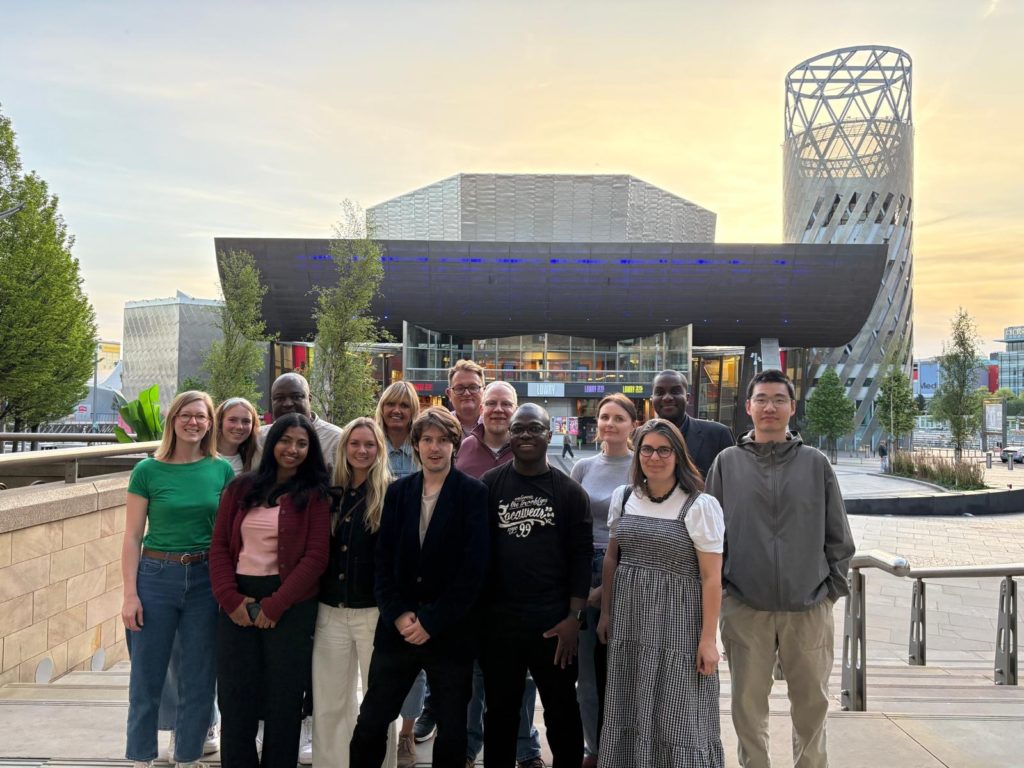Exeter Collaboration for Academic Primary Care (APEx) Blog
Exeter Collaboration for Academic Primary Care (APEx) Blog
Posted by ma403
23 September 2025
Building capacity and investing in the future: Cancer Theme researchers at the prestigious CanTest School held in September 2025 at Emmanuel College, University of Cambridge
Background
Cancer contributes the second greatest level of disease burden globally and its incidence is rising. For decades, cancer outcomes in the UK have been worse than those in other high-income countries, but the gap is closing. Since the early 1970s, UK cancer mortality rates have fallen by around one-fifth and cancer survival has doubled, with over half of people expected to live for at least 10 years after their diagnosis. The internationally recognised and impactful research led by Professor Willie Hamilton at University of Exeter has played a crucial part in these improvements. The results have had a profound impact on clinical practice, by informing the 2015 revision of the National Institute for Health and Care Excellence (NICE) guidelines Suspected Cancer Recognition and Referral. The proportion of patients diagnosed via the emergency route – notorious for poorer outcomes – is falling, and instead more patients are being diagnosed via the optimal urgent suspected cancer referral pathway.
As a team, the Cancer Theme is building on this legacy, growing in scope, size and ambition from an initial team of six researchers to a department of nearly thirty. Our multidisciplinary team is led by Professor Richard Neal and Dr Sarah Price, and includes clinicians and researchers with backgrounds in statistics, health services and public health research, allied health care professions, general practice, psychology and biological/biomedical sciences. We also collaborate closely with other early cancer diagnosis groups in the UK and abroad, attracting a wide portfolio of funders, including NIHR, cancer charities, philanthropy and industrial partners. Our research strategy is informed by national policy, local priorities, and clinical gaps and needs, and includes themes of personalised risk prediction, describing and reducing inequalities, using big data to gain insights into gaps and opportunities in cancer diagnosis, and novel technologies and approaches to early detection of cancer. The examples below provide a snapshot of how the Cancer Theme’s work aligns with current national policy.
Harnessing big data to improve cancer detection and outcomes
Professor Gary Abel is leading a work package within the £10 million partnership called the Cancer Data-Driven Detection Programme to use data and artificial intelligence to detect individual cancer risk. This programme, directly speaking to aims of the NHS 10-year Plan, will link health records with data on genetics, family history, demographics and behaviour to predict a person’s individualised cancer risk.
“Diagnosing cancer can be notoriously difficult, and health services in the South West are under extreme pressure. Our work in this exciting new partnership improves the intelligent use of investigations and referrals, which has the potential to take pressure off the system, diagnose patients sooner, improving time to treatment, and thus saving lives.
We’ll consider vague symptoms, like weight loss and abdominal pain, and build AI and other models that will help guide GPs into what investigations to use with these patients. The models will draw on a range of data from medical records, on medications, test results, and other conditions to show GPs what the risk of different cancers are and which tests or investigations will be most useful in refining this risk.
Over the next five years, the funding will build the infrastructure required to access and link the datasets, train new data scientists, create the algorithms behind the risk models and evaluate the algorithms and AI tools to ensure that they are giving accurate and clinically useful information about cancer risk. The scientific programme will be guided by partnerships with cancer patients, the public, clinical experts and industry, while addressing ethical and legal considerations to ensure that the models and tools work well in practice.” Professor Gary Abel
COLOFIT
The COLOFIT Study developed and validated a prediction model that estimates the 1-year risk of colorectal cancer in people who had undergone a faecal immunochemical test (FIT) in primary care. FIT detects blood in a person’s stool, and NICE recommends colonoscopy or computed tomography colonography in symptomatic patients with ≥10µg haemoglobin per gram of faeces. However, this recommendation created an imbalance between supply and demand for imaging, threatening to overwhelm the service. The purpose of the COLOFIT Study was to refine the selection of patients sent for investigation to eliminate this risk – a strategy that may be applicable to tests in other cancer sites.
“The COLOFIT equation passed rigorous validation, and has a supportive health-economic analysis. NHSE are enthusiastically working on adoption into the English NHS. If it meets the expectations from its development, it may allow the same number of colorectal cancers to be diagnosed, but using 20% fewer colonoscopies. This reduction in colonoscopies will mean that waits for colonoscopy should fall, allowing many – if not all – cancers to be identified and treated more quickly.” Professor Willie Hamilton
Young FIT
While over half of all new cancers are diagnosed in older people (aged ≥70), a worrying trend is the rising incidence of aggressive cancer in people aged 20 to 49. In response to this, we performed a diagnostic accuracy study of the faecal immunochemical test (FIT) in this younger age group. Researcher Mel Barlow concluded that “FIT performs excellently in patients aged 40–49; however, it may not be used optimally in patients <40 years. A more targeted strategy is needed to guide investigations in younger patients.”
“Plans for future work involve optimising the profile of younger patients who should be offered a FIT, to guide targeted recommendations. This will include a particular focus on the role of blood test results and symptom characteristics, including symptom onset, severity, persistence, and co-occurrence.” Associate Professor Sarah Bailey and Mel Barlow
Exploring how polygenic risk scores could be used to expedite cancer diagnosis in primary care
In line with the “5 Big Bets” of the NHS 10-year Plan published in 2025, researchers in the Cancer Theme are incorporating genetic information into risk assessment strategies.
“The NHS 10-year plan aims to incorporate genetic information and modern data science techniques in routine clinical care. Currently, The R207 (Ovarian) R208 (Breast) and R430 (Prostate) gene panels identify a number of genes in which rare, pathogenic variants cause a high risk of cancer.
For some diseases, including prostate cancer, the aggregation of many low-effect, common variants into a genetic risk score is a powerful predictor of disease. We have previously shown that a genetic risk score has comparable diagnostic accuracy to the PSA test in a symptomatic population. However, as White participants make up 85% of the population in genetic studies, current genetic risk scores perform poorly in Black populations. The optimal test would use all of the information available to us, including demographics, clinical tests, and genetics.
Genetic risk scores have high potential for prediction and screening, but implementation into policy requires careful consideration of the impact on existing racial disparities.’ Dr Harry Green
This is where we are right now, but we’re eagerly awaiting the forthcoming National Cancer Plan – indeed many of us responded to the government’s call for evidence earlier this year. In future blogs we will talk about how we are refining our strategy to address the new challenges and aims outlined in that plan. We will also talk about our plans for capacity development and embedding the patient and public perspective across all aspects of our work. If our work interests you, and you see parallels with your own research, do get in touch – we are always keen to develop new links and collaborations that will result in improved patient outcomes and services.

Sharing and disseminating our work: Cancer Theme researchers at the Cancer in Primary Care Research International Conference, Manchester, 2025